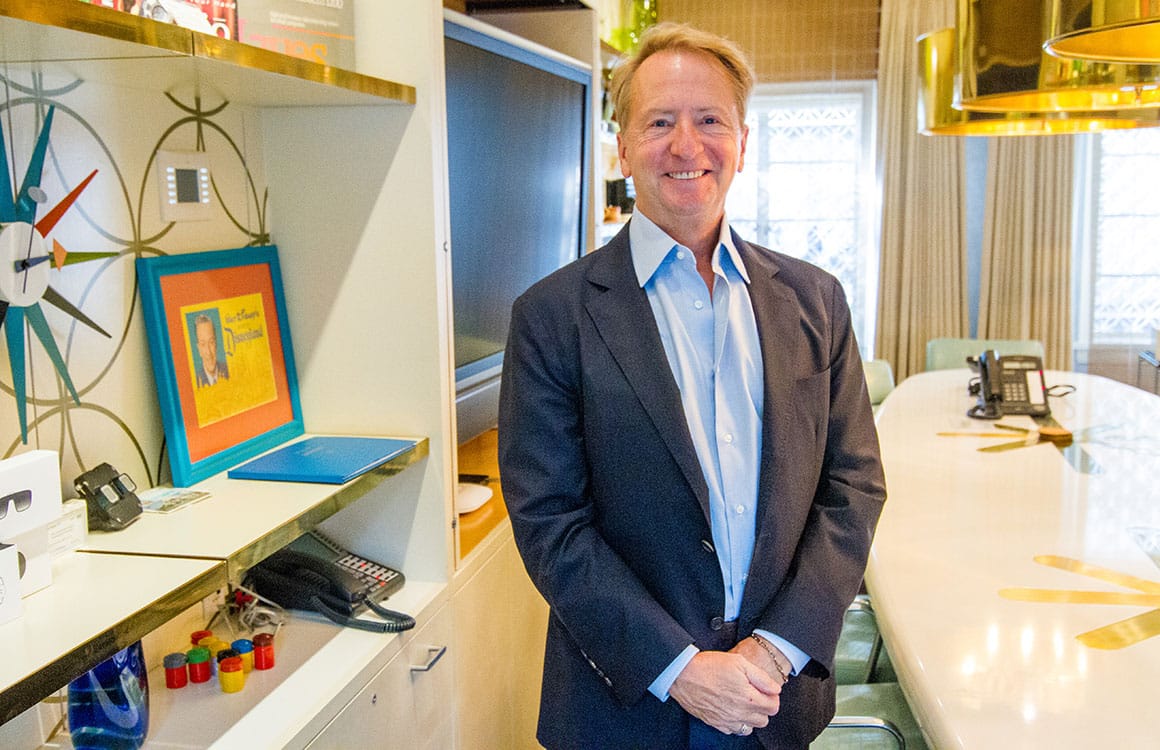Twitter. Facebook. Tumblr. These social media giants have become integral parts in contributing to our daily lives. But how often do we stop and reflect on the history of our digital habits? Before Facebook and even before MySpace, there was GeoCities.
Founded by David Bohnett in 1994, GeoCities provided the public with free webpages to share their interests and passions with like-minded individuals. Some would considered it the first blogging site, others the first social network.
As the Internet’s use and popularity continued to increase during the 90s, so did the users of GeoCities. In less than five years, the pioneering social media platform had become the 3rd most visited site on the World Wide Web, and in 1998, turned IPO. Within a year, the company was acquired by Yahoo! for $3.5 billion.
It was David Bohnett who we can thank for the massive ripple that allowed for sites like WordPress to exist. To recognize his accomplishments and celebrate the path he paved for us as digital journalists, MiLLENNiAL is honored to debut David Bohnett as the first Mentor in the 2015 Mentor Series.
Building a Tech Company in the 90s
Bohnett was an early adopter of technology and became fascinated with computers in the 70s. A USC business grad with an emphasis on computer engineering, Bohnett went on to work for software companies throughout the 80s and received an opportunity to jump into the Internet space in the early 90s. “I was always interested in computers and technology and I was an early subscriber of Prodigy, CompuServe and AOL even before they were proprietary bulletin boards that you would dial into,” he tells us. “Once you could connect a modem to a computer – that opened up a whole world of connecting with other people.”
“We had to build everything ourselves.”
The idea of sharing passions and interests with the world was an amazing thought for Bohnett, who was an activist and community builder himself. “It wasn’t just about giving away free web pages, it was about organizing community ventures,” he says. This portal offered people of all backgrounds and geographical locations a place to come together through targeted interests and learn from each other’s experiences. But running a blog site in 1995 was nothing like it is in 2015.
“We had to build everything ourselves,” Bohnett emphasizes, “We had to solder a VHS camera to a computer to create the first webcam.” Obtaining storage space today is as easy as buying a hard drive, but in Bohnett’s era, he had to develop the infrastructure of the site in real time to support the amount of users coming to his platform. “That was a challenge but that was also what created a lot of the value,” he points out.

In 1997, GeoCities became one of the first sites to sell and display targeted advertising. “Right from the beginning the communities were all segregated by subject matter. So banks could advertise in the finance world.” This presented the first online opportunity for brands to directly market to their consumer base, and big companies like Yahoo and eBay were taking notice.
By the end of the decade, Bohnett was met with an acquisition from Yahoo. He says the moment he was about to sign the papers, he “felt incredibly proud to have built something that was so significant” and knew the offer was a once in a lifetime deal. To entrepreneurs facing similar exits, he suggests, “don’t be greedy, find a partner that has compatible business values and go for it.”
Creating Baroda Ventures
Leveraging the sale of GeoCities into a fortified venture capital firm, Bohnett launched Baroda Ventures to financially support emerging technologies in the consumer goods sector. Throughout the years, he has successfully grown companies to the point of acquisition and is a current investor in DogVacay, SurfAir, and Fab.
Although Baroda Ventures doesn’t particularly focus their investments on social entrepreneurial ventures, Bohnett comments on the trend. “The Millennial generation has a much greater sense of the problems in the world and how you can contribute to solve those. I think people can do a lot of good without combining it with their work passion. Use your career skills to empower your activism and philanthropy.”
Practicing what he preaches, this is the exact philosophy Bohnett used for supporting gay rights.
The LGBT Movement & the David Bohnett Foundation
Aside from revolutionizing social web pages, Bohnett is also one of the original leaders in the LGBT community. After losing his college lover to suicide, Bohnett immediately began volunteering for suicide hot lines in the 70s. This motivated him to try and change public perception and would voluntarily sit in front of college psychology students and say “I’m gay. Ask me anything.” This honesty with himself and others made him a hero to so many in the community.
He later joined forces with the Gay and Lesbian Alliance Against Defamation (GLAAD) and knew that in order to influence the masses with their messaging, they needed to reach the media. “I thought that if we could support positive portrayals of gays in the media it would help people feel more comfortable about coming out.”
His work involved a three-step plan. “First, it is and was a very focused media strategy. Secondly, a political strategy to support candidates that were for gay and lesbian civil rights, and thirdly, a social service supporting the organizations in the community that provide services to lesbian and gays on a regular basis.”

Looking at the civil improvements that have occurred for millions of lesbians and gays over the last 30 years, Bohnett says, “We’ve made a huge amount of progress.” Their success is evident by the rise of lesbian and gay relationships seen in popular television shows such as Modern Family and Orange is the New Black among many others.
To further assist those struggling to come out or feel comfortable with their identities, Bohnett has developed 60 cyber centers across the United States for underprivileged members of the LGBT community who don’t have access to the Internet.
Center CEO Lorri L. Jean says, “The David Bohnett Foundation enables the Los Angeles LGBT Center to offer a vital service: computers and Internet access. There are still many LGBT people who can’t afford a computer or high-speed Internet access…the majority of our users report that the David Bohnett CyberCenter is their sole computer access point in the city.”
Aging with Dignity and Satisfaction
Now 58, Bohnett has led an incredibly fruitful life full of philanthropy and revolution. For a man who has accomplished not only pioneering a wave of technological breakthroughs , but also breaking down social barriers, we asked him to reflect on a piece of advice he would offer to his 30-year-old self. “Keep trying new things as fast as you can and don’t be afraid to fail,” he says.
“Keep trying new things as fast as you can and don’t be afraid to fail.”
Bohnett also offers his secret to a happy life and says the key to maintaining healthy relationships and friendships is by prioritizing the time spent with those you find special. “Put down your phone and talk with people. Learn and support what is interesting to them. That leads to a very fulfilling and long-term sense of satisfaction.”
To learn more about David Bohnett visit Baroda Ventures or the David Bohnett Foundation.
